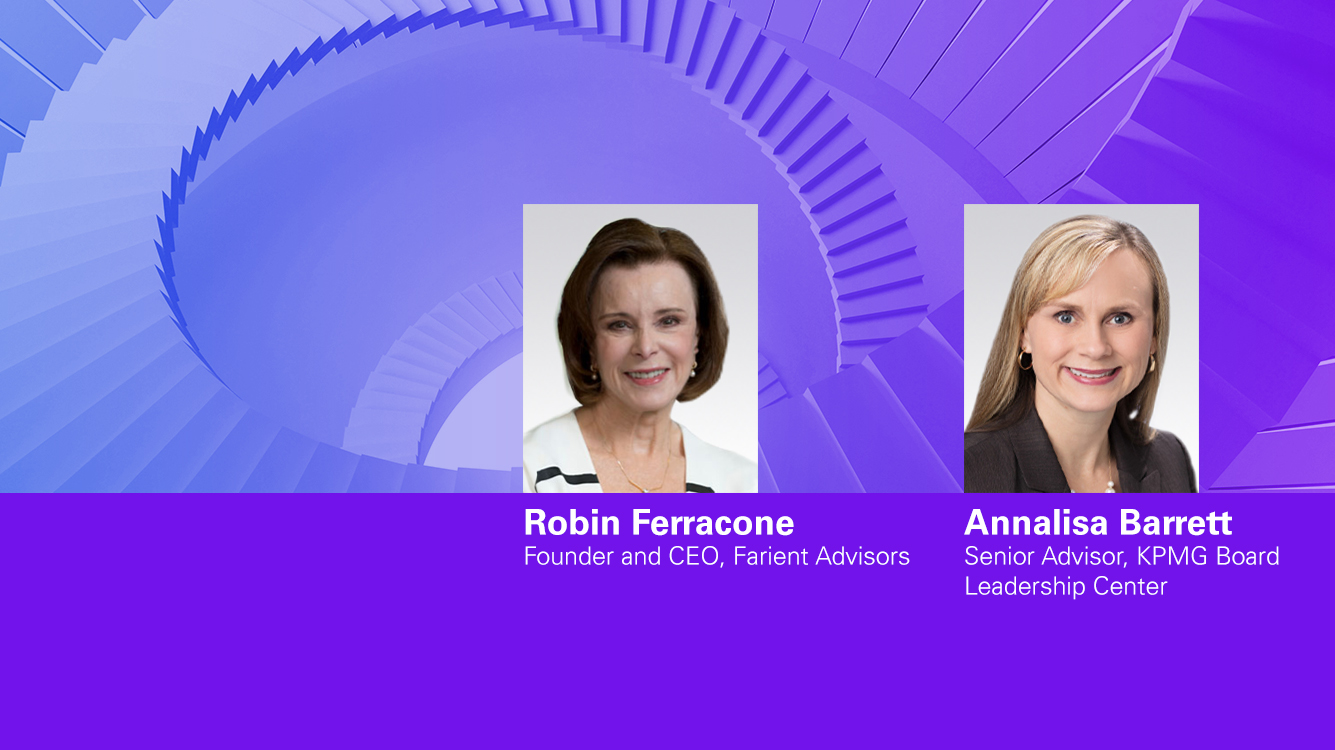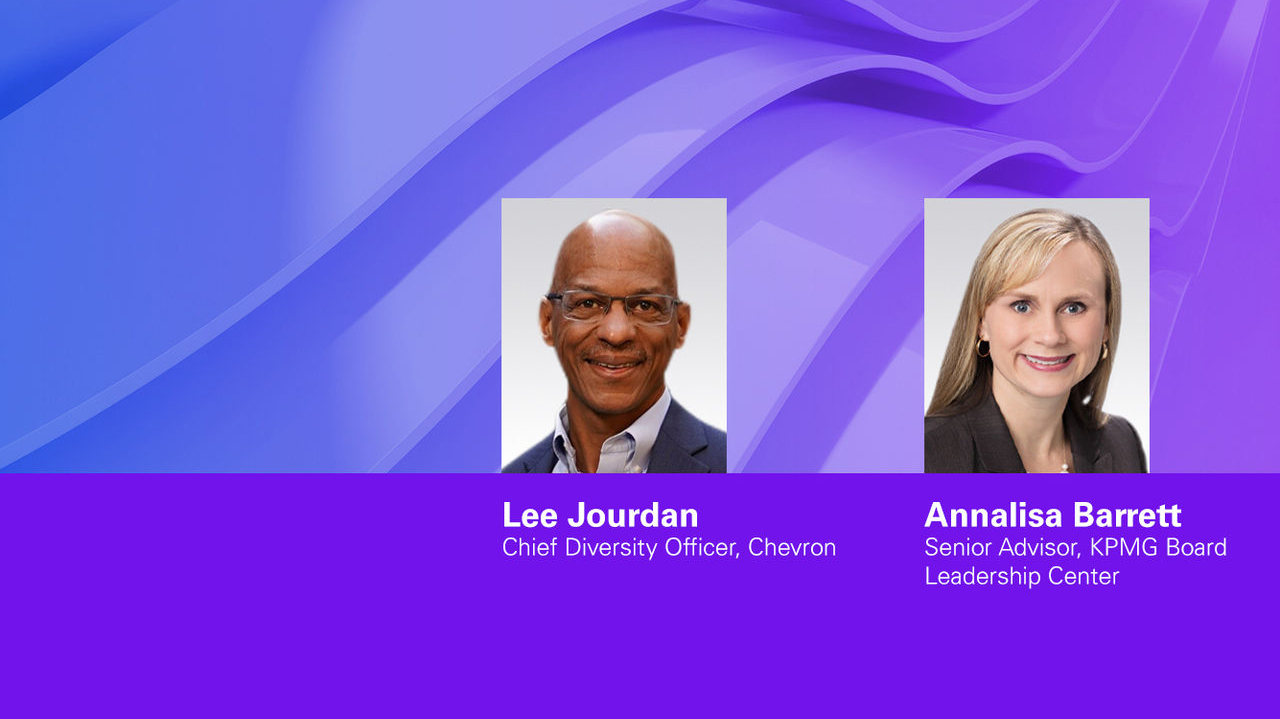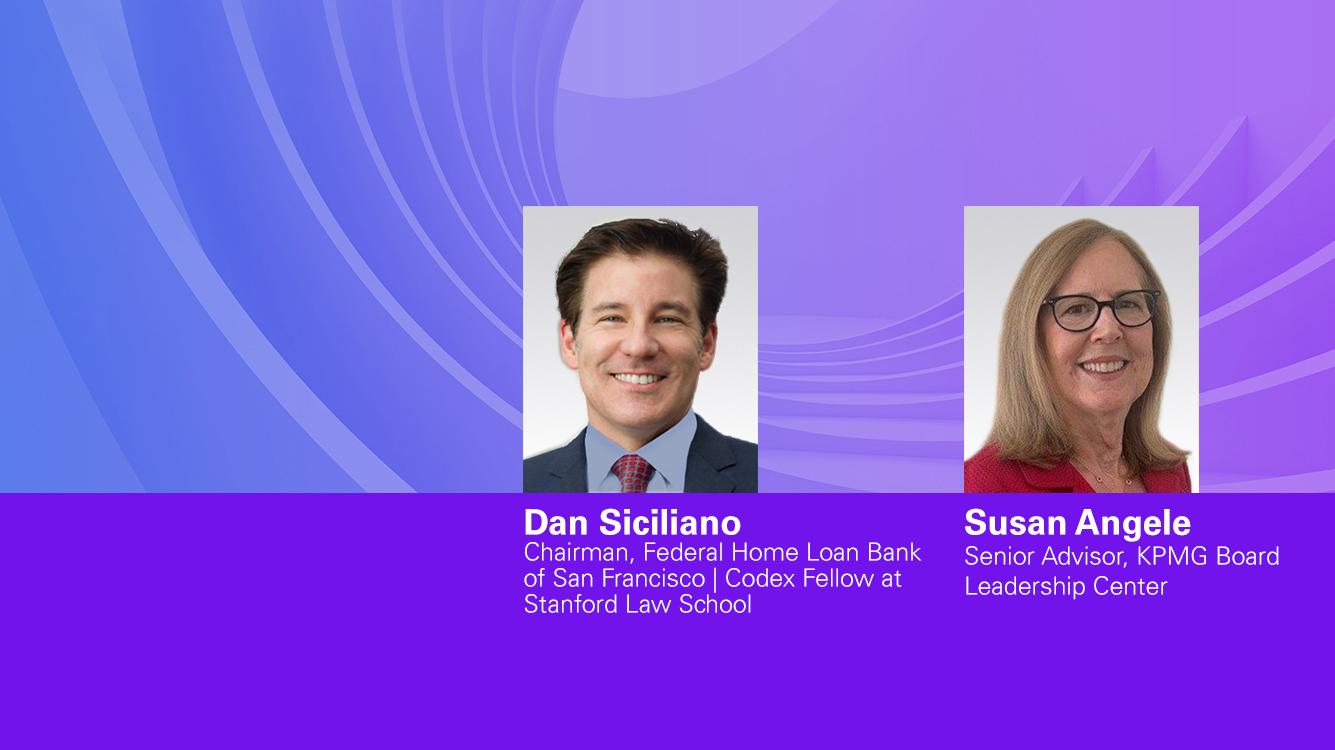Board composition and effectiveness
The board's role in board composition, diversity, effectiveness, succession and talent, and more.

Featured board insights and programs

Asian representation on Fortune 1000 boards: 2023 Edition
KPMG and Ascend Pinnacle’s third study examining Asian representation on Fortune 1000 boards

Directors Quarterly: April 2024
A boardroom lens on Gen AI, financial reporting updates, Latino representation on boards, and tapping the value of independent directors

Latino representation on Fortune 1000 boards: 2023 Edition
KPMG and the Latino Corporate Directors Association fourth study examining Latino representation on Fortune 1000 boards.
Board composition and effectiveness
KPMG Board Diversity Disclosure Benchmarking Tool
Track board diversity disclosures using the KPMG Board Diversity Disclosure Benchmarking Tool.
Board Governance Video insights
Receive the latest insights from the Board Leadership Center
Sign up to receive Board Leadership Weekly and Directors Quarterly




